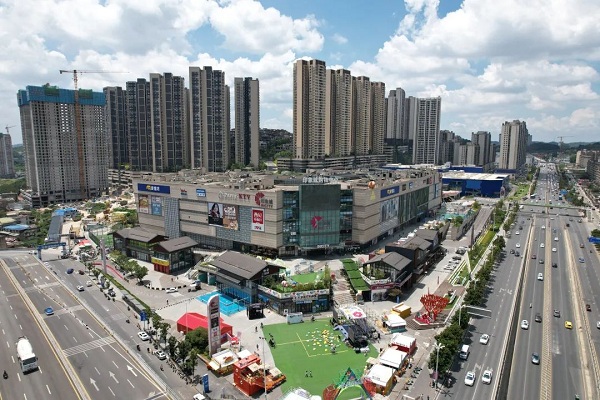Commercial complex in Yunyan works to become zero-waste shopping mall
Guiyang, capital of Southwest China's Guizhou province, is working to become a zero-waste city to foster a shared and sustainable environment.
Guiyang has completed the evaluation of the first batch of zero-waste shopping malls, with 12 shopping malls, including InCity in Yunyan district, passing the assessment.
Being zero-waste does not mean a city must completely eliminate waste. Instead, it focuses on the effective utilization of solid waste, reducing waste production, resolving historical waste accumulation, and ensuring a circular economic approach to waste management.

An aerial view of InCity in Yunyan district. [Photo/WeChat account of Yunyan district]
InCity, as a large commercial complex, generates a significant amount of solid waste daily, particularly from kitchen waste.
Housing approximately 160 businesses, including around 50 restaurants, the complex produces a substantial amount of kitchen waste. The complex has collaborated with professional waste management companies to learn how to properly handle and dispose of kitchen waste.
In addition, tenants are encouraged to use electronic invoices instead of paper ones, promote the use of biodegradable utensils, and implement QR code ordering.
During construction, the complex replaced all public area lighting with LED lights, saving 180,000 kilowatt-hours of electricity per year. The central air conditioning system is also automated, adjusting intelligently based on weather conditions and time, reducing energy use and emissions.
Meanwhile, the complex incentivizes customers who embrace the zero-waste concept by offering shopping discounts. For example, customers who bring their own shopping bags can receive an overall discount during checkout.
Presented by China Daily.
黔ICP备05001922号-3
